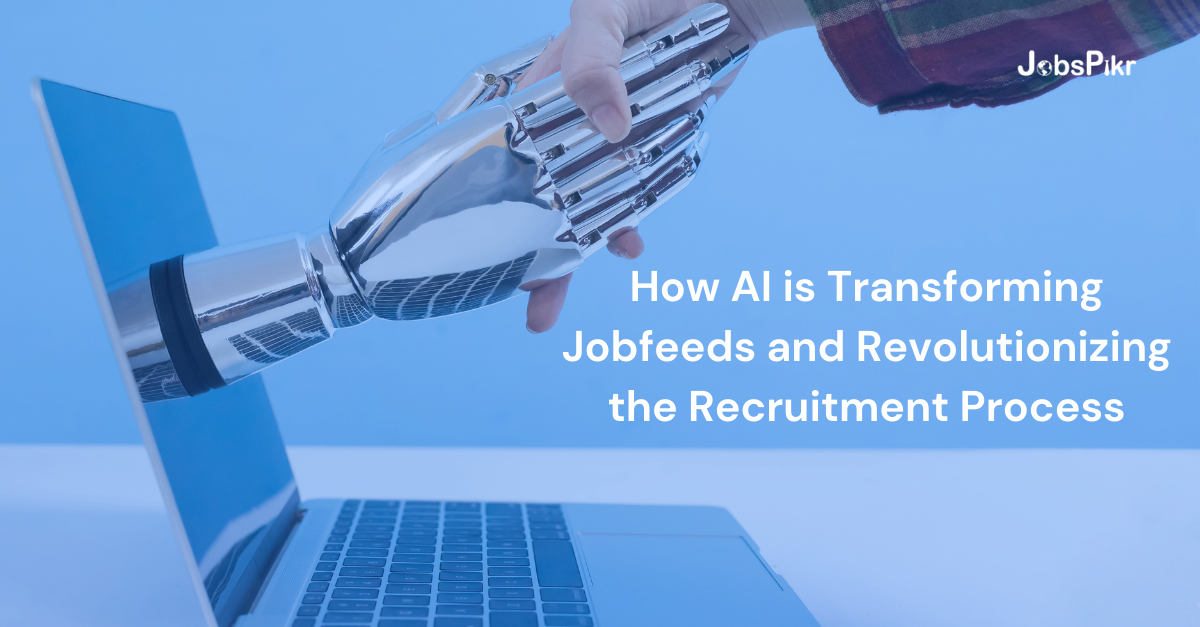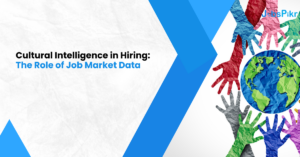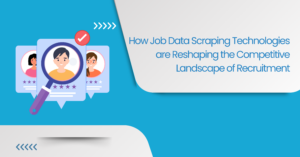Introduction
Artificial Intelligence (AI) has been making pioneering advancements across various industries, and the field of recruitment is no exception. With the explosive growth of digital platforms and job boards, the task of finding the right candidates for job openings has become increasingly challenging.
Fortunately, AI has emerged as a game-changer, revolutionizing the recruitment process by transforming jobfeeds. AI-powered jobfeeds leverage advanced algorithms and machine learning techniques to deliver more accurate and efficient candidate recommendations. In this article, we will explore how AI is reshaping jobfeeds and the significant benefits it brings to the recruitment industry.
Understanding AI in Jobfeeds
Jobfeeds are essentially the streams of job postings displayed on various platforms and websites. Traditionally, these feeds were populated with job listings based on manual input and basic categorization. However, AI has introduced a new era of personalized job recommendations. By analyzing vast amounts of data, including job descriptions, candidate profiles, and user behavior, AI algorithms can now deliver highly relevant job listings to individual candidates.

Image Source: pnas.org
AI-powered jobfeeds employ natural language processing (NLP) techniques to understand the semantic meaning of job postings and candidate profiles. This allows the algorithms to accurately match job seekers with job openings based on their skills, experiences, preferences, and career goals.
Benefits of AI in Jobfeeds

Enhanced Candidate Matching
One of the most significant advantages of AI-powered job feeds is improved candidate matching. Traditional job posting platforms often struggled to effectively match candidates with suitable job opportunities due to limited keyword-based searches. However, AI algorithms perform sophisticated analysis to understand the context, meaning, and intent behind job descriptions and candidate profiles. This enables the system to identify the best-fit candidates for specific roles, resulting in higher-quality applications and improved hiring outcomes for employers.
Efficient Automation
AI-driven job feeds streamline various aspects of the recruitment process. For example, algorithms can automatically analyze and categorize job postings, ensuring accurate tagging based on factors like job titles, industries, and locations. This automation proves to be a time-saving measure for job boards and recruiters, enabling them to redirect their efforts toward more strategic tasks, such as conducting interviews and evaluating candidates.
Moreover, AI algorithms play a pivotal role in evaluating candidate qualifications by analyzing resumes, portfolios, and other pertinent documents. Through automating the initial screening process, recruiters can efficiently navigate through large volumes of applications, identifying the most promising candidates for further consideration.
Addressing Bias in Job Recommendations
Overcoming a persistent challenge in recruitment lies in combatting unconscious bias within the hiring process. Conventional methods of candidate shortlisting often hinge on subjective decision-making, inadvertently leading to biased outcomes. Enter AI-powered jobfeeds, holding the potential to alleviate these biases.
By leveraging objective criteria and data-driven decision-making, AI algorithms can effectively minimize the influence of unconscious bias. These algorithms systematically consider a broad spectrum of factors, including skills, experiences, and qualifications, while disregarding irrelevant personal characteristics. This fosters a recruitment process characterized by fairness and equity, ensuring that every candidate is assessed solely on their merits.
Future Prospects and Challenges
The outlook for AI in jobfeeds and recruitment is optimistic. With ongoing technological advancements, AI algorithms are poised to become more sophisticated, improving their accuracy in pairing candidates with suitable job opportunities. The fusion of AI with emerging technologies like natural language generation (NLG) and sentiment analysis offers significant potential for further elevating the recruitment experience.
Nonetheless, there are notable challenges on the horizon. A key concern revolves around the possibility of AI algorithms perpetuating existing biases if not designed and monitored effectively. Organizations must diligently assess and refine their AI models to ensure an equitable and transparent recruitment process. Additionally, monitoring ethical considerations, privacy, and data security concerns is imperative in the evolving landscape of AI-driven recruitment.
Conclusion
AI is transforming job feeds and revolutionizing the recruitment process. With its advanced algorithms and machine learning capabilities, AI-powered job feeds have significantly improved candidate matching, automated various aspects of recruitment, and eliminated bias in job recommendations. The future prospects for AI in job fields are promising, albeit with challenges that need to be addressed. As the recruitment industry continues to embrace AI, the hiring process is set to become more efficient, equitable, and effective than ever before.




